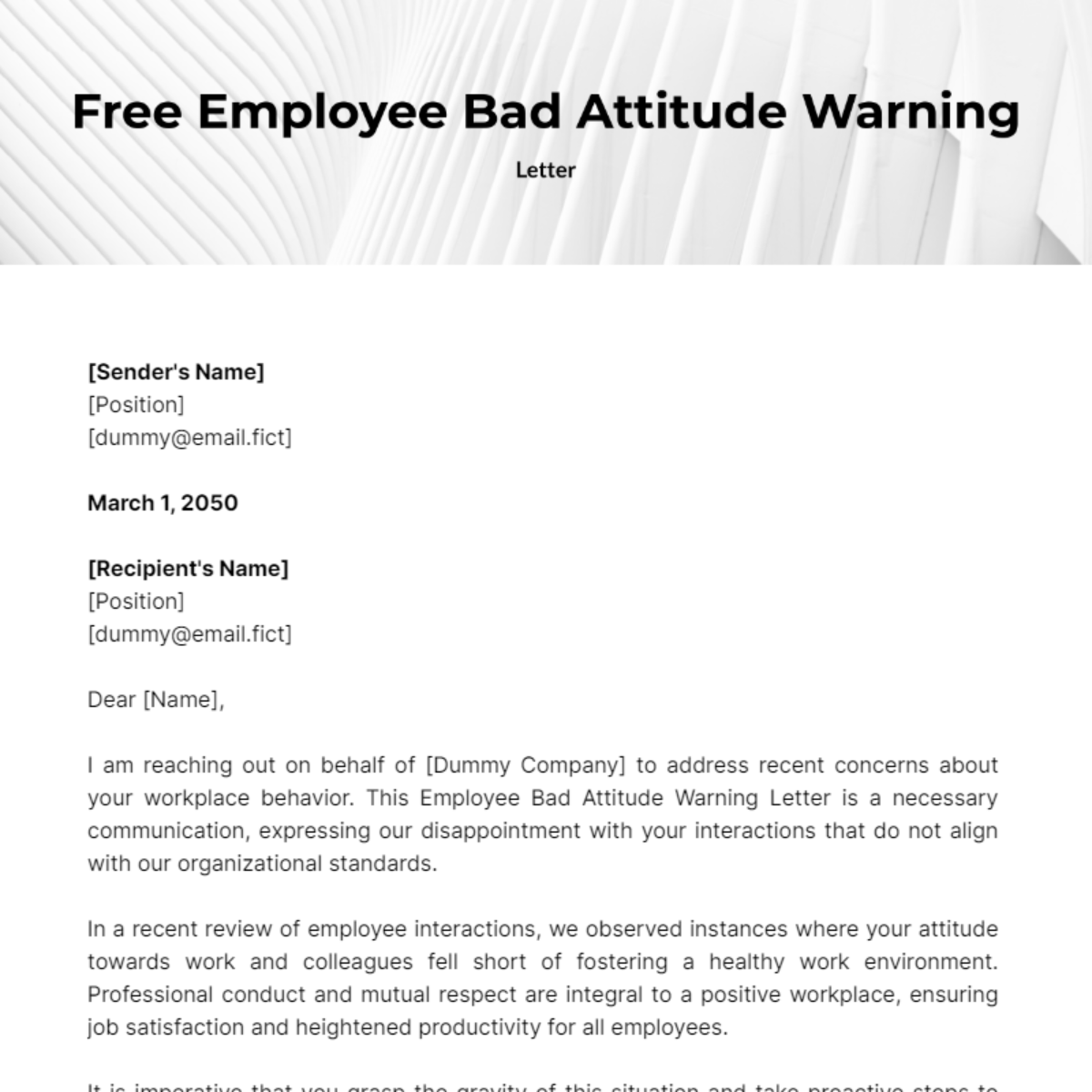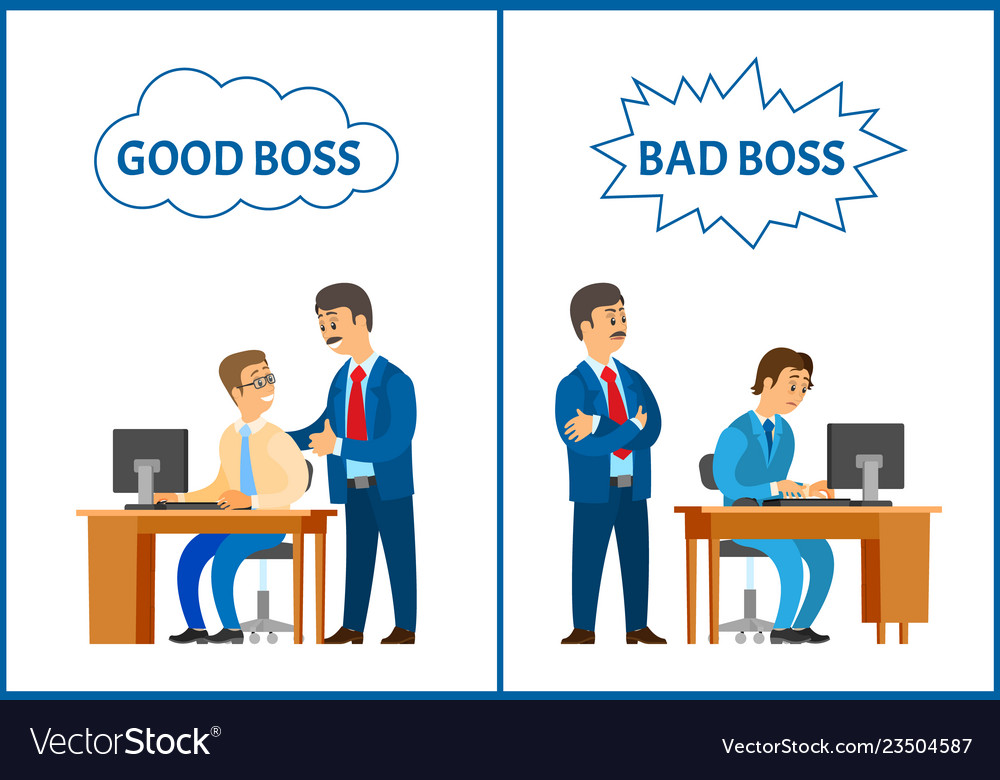What To Say To An Employee With A Bad Attitude

Confronting a negative attitude in an employee demands immediate and decisive action to protect team morale and productivity. Ignoring the problem risks allowing it to fester, impacting the entire workplace dynamic.
This guide provides actionable strategies for addressing toxic attitudes, offering a framework for direct, constructive conversations that can lead to positive change – or, if necessary, a clear path towards separation. It emphasizes a proactive approach to maintain a healthy and productive work environment.
Identify and Document the Issue
The first crucial step is to identify and thoroughly document the specifics of the employee's negative attitude. Avoid generalizations; focus on observable behaviors and their impact. Collect concrete examples: missed deadlines, disrespectful communication with colleagues, or consistent complaints without offering solutions.
Detailed documentation protects the company during potential disciplinary action or termination. Record dates, times, specific incidents, and any witnesses to the behavior. This evidence forms the backbone of your case and lends credibility to your concerns.
Schedule a Private Meeting
Arrange a private, one-on-one meeting with the employee. Choose a neutral location to minimize potential discomfort or defensiveness. Ensure the meeting is confidential to foster trust and encourage open communication.
Be clear about the purpose of the meeting from the outset. Let the employee know that you are addressing concerns about their behavior and its impact on the team.
Deliver Direct and Constructive Feedback
Begin by stating the specific problematic behaviors you have observed. Use "I" statements to avoid sounding accusatory. For example, instead of saying "You're always complaining," say "I've noticed you've expressed concerns about the new project in several team meetings."
Explain the impact of the employee's behavior on the team and the company. Quantify the impact whenever possible. If the employee's negativity is disrupting team productivity, state that explicitly: "This negativity has resulted in a 15% decline in project completion rates over the last month."
Listen Actively and Empathize
Allow the employee to respond and actively listen to their perspective. There may be underlying issues contributing to the negative attitude. Show empathy while maintaining professional boundaries. Avoid interrupting or becoming defensive.
Acknowledge their feelings without necessarily agreeing with their behavior. For instance, you could say, "I understand you're frustrated with the new software, but your negative comments in team meetings are impacting morale."
Establish Clear Expectations and Consequences
Clearly outline the expectations for future behavior. Be specific about what you expect to see from the employee moving forward. Set measurable goals and a timeline for improvement.
Explain the consequences of failing to meet these expectations. This could include further disciplinary action, performance improvement plans, or ultimately, termination of employment. Make sure this aligns with company policy and legal requirements.
Offer Support and Resources
Provide the employee with the support and resources they need to improve. This might include additional training, mentorship opportunities, or access to employee assistance programs. Demonstrating support can help the employee feel valued and motivated to change.
Check in regularly to monitor progress and provide ongoing feedback. This shows commitment to helping the employee succeed. Schedule follow-up meetings to discuss progress and address any challenges.
Document Everything
Document the meeting, including the date, time, attendees, and a summary of the discussion. Include the specific behaviors discussed, the expectations set, and the consequences outlined. This documentation is essential for future reference and legal protection.
Retain all related documents, including emails, performance reviews, and any written warnings. Ensure that all documentation is consistent and accurate.
When to Escalate
If the employee's behavior does not improve despite these efforts, it may be necessary to escalate the situation. Involve HR or senior management in the process. They can provide additional guidance and support. Know when the situation is beyond repair.
If the employee's behavior is egregious or violates company policy, immediate termination may be necessary. Consult with legal counsel before taking any drastic action. Follow established company procedures for termination.
The Cost of Inaction: A Toxic Workplace
Ignoring a bad attitude can have devastating consequences. It can erode team morale, decrease productivity, and increase employee turnover. A negative work environment can also damage the company's reputation and make it difficult to attract and retain talent.
Addressing these issues promptly and effectively is crucial for maintaining a healthy and productive workplace. Be proactive, be direct, and be prepared to take decisive action when necessary.
What’s Next? Consistent monitoring and documentation are critical. If improvements are not observed within the agreed-upon timeframe, stricter disciplinary measures must be considered, including potential termination, ensuring legal compliance at every stage.


















